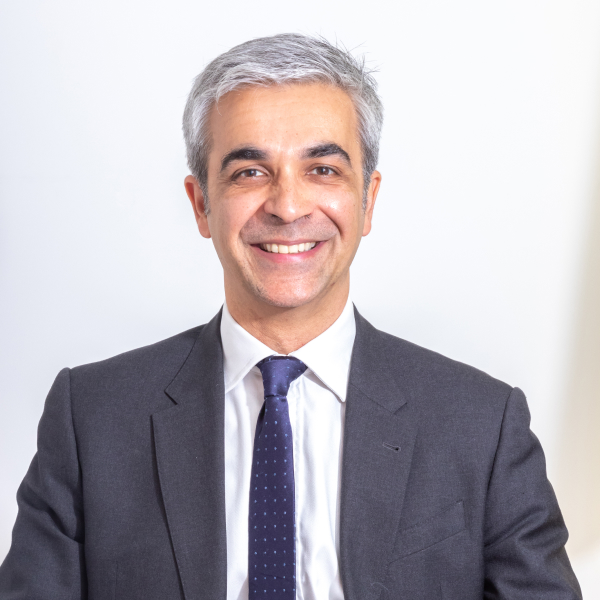The Dental Business Guide Podcast Episode | March 10th 2021
Arun Mehra & Smita Mehra
Arun Mehra: Hello and welcome back. This is Arun Mehra from the Dental Business Guide podcast and today I’ve got Smita Mehra, how are you?
Smita Mehra: Yes, very well. Thank you, Arun, very good. Just looking forward to talking a little bit more about emergencies today.
Arun Mehra: Yeah, so today Smita is going to share her experience and knowledge and expertise on how to get emergency dental patients. Now obviously, this has perhaps been an odd year to say the least.
But maybe you want to share a little bit of experience of what you did in your practices, and then how this has translated into your business and then how you can suggest other people to do it themselves as well.
Smita Mehra: Well, yes, as you rightly said, it’s been quite an odd 12 months really for us. Well, as it has been for everybody, certainly in the dental field, and obviously wider fields.
Patients Don’t Want General Treatment, But They Still Have Dental Emergencies
But what what I found most interesting, certainly recently over the last few months of lockdowns, and then Boris Johnson making speeches and somebody else coming on to to make either further lockdown restrictive speeches or opening things up, is that our emergencies and new patients and people calling the practices have been very linked to these announcements that the government makes.
So for example, if Boris is announcing further restrictions or a new lockdown, suddenly we get a lot of cancellations, and people will phone up in fear. Whereas conversely, recently, they’ve started to open things up. And Boris spoke just a week or so ago about the roadmap to recovery. And suddenly, the phone starts to get very much more busy as confidence grew.

So what we found during the sort of worst phases of lockdown when the books did really go quiet, is that we realised that people weren’t going to come in for general treatment, they weren’t advised to move around. And they were trying to restrict movement of people. So the only reason and way that people would be coming to us would be an emergency situation.
So no check-ups and general treatment, but just more emergencies. So we decided to focus our online attention to marketing towards emergencies and same-day appointments. And we also opened up our hours, we increased our hours of opening, we increased our days of opening. And we went to seven days a week. And that helped.
Arun Mehra: So, obviously it was a difficult time for everybody. But the team stepped up, correct?
Your Team Needs to Step Up
Smita Mehra: Yeah, we’re very, very lucky, the team stepped up, everybody stepped up, they stepped up their game. And it ended up being very fruitful in many ways. But the other thing to remember is that we’re looking at just the business of the book and the figures. Now reflecting back on it, one of the big reasons we ended up doing quite well at that point was because none of the dentists were taking time off, none of them were taking holidays.
And so those, I don’t know, four to six weeks or more, that dentists would normally take time off, and hence the books would go quiet or your patient base would go on holiday, for example, through the month of August or at Christmas, those quiet periods weren’t there.
Conversely, it was quiet in many other ways. But if you then busied up the books by getting people in to do the only thing they could do, emergencies, then that obviously generated further treatment and goodwill.
Arun Mehra: So on the emergency front, how did you get the message out through the various lockdowns that, firstly, that you are open, but also that you can deal with emergency patients.
Contact us to find out more
Get The Word Out There
Smita Mehra: The first thing we did is we announced it on our website, on our homepage that we were open or not open, depending on which lockdown we were in. We also made sure that we had regular social media updates, whether it be Facebook or Instagram, going out, reaching out to our patient base and beyond.
We had simple things outside the door, we had a blackboard out which notified you of what our current status was. And we also emailed our patient base just to let them know whether we were closing down or opening up etc. So there were various modes of communication that we used.

Arun Mehra: Okay, but then obviously, that’s to your existing patient base. What about attracting new patients? How did you go about doing that?
Smita Mehra: That was mostly based on website and Pay Per Click marketing, and just notifying patients or notifying the wider public through our homepage on the website. That’s the predominant way.
Arun Mehra: And am I right in saying that one of the team was fully solid and creating content around emergency care and content around COVID. What to do in the instance of COVID and therefore, when people were searching for seeing a dentist during COVID, the page is ranked organically very, very well.
Smita Mehra: Yeah, absolutely. I mean, we had a couple of people and one certainly was working full time on just creating new and interesting and relevant content, even during the first lockdown nearly a year ago now.
So that two odd months that we were closed or quiet, you know, a couple of people were in the background really working to build up content, that then really helped us once we opened up because we were at a certain level, because of the organic growth of the content that we had.
Open a Dental Shop
And that was at a period when most websites or most dentists were completely, you know, locked down and the sort of locked the door and left the building as it were, both physically and metaphorically. So because we didn’t do that, because we didn’t leave the building metaphorically. And we were really working sort of backstage on all of these things.
We even built an online shop literally within a couple of days, with the help of our online marketing team. And that, you know, carried on, it held some traction with emergencies that were coming in, I would direct them to the shop. And they would purchase emergency kits and temporary filling kits, etc.
From there, that wasn’t a huge amount of business in terms of revenue. But it was just that we were keeping things going online and keeping our methods of communication going. And the phone calls, I was answering the phone calls throughout the first lockdown, almost 24 hours a day. So there were open lines of communication at all times.
Arun Mehra: Okay, great. So, obviously now, getting emergency patients seems to be the big thing that you’ve focused on in the last year. Now, I suppose, as a result of lots of NHS practices, not providing much or limited care.
That’s obviously helped, not just in your practices, but other private practices out there in terms of clients I’ve spoken to. So now, for those people who haven’t targeted emergency patients in the last 12 months, what do you think the benefits are to you to your business?
Pick Up the NHS Slack
Smita Mehra: Well the privilege is that we are fully private. So the provision of NHS obviously, they’re very, very stretched at the moment and have been for the last 12 months. And due to the lack of provision or how stretched they are, people have been making a private call and coming to us through other means.
So in other words, they were NHS patients, but obviously they’ve had to make the call to come privately. Now, I know that there will be a core of patients who perhaps can’t afford it and have gone to hospitals.
But then there are groups of people who can afford to be treated privately, they’ve just chosen to go down the NHS route, but now have realised that actually through the private route the provision of care and the immediacy of the care that they’ve received has been far superior, just because the ability of what private practices can do at the point of need, so it’s really, really helped.
The new patients that have come through over the last 12 months have been phenomenal, because not only have they turned into treatment, and they’ve referred their friends and family to us. But the types of treatment that we’ve been doing have been much more complex.

Contact us to find out more
And, even things like leads from that, things like Invisalign, for example, which Okay, it’s not an emergency, but it’s very lockdown friendly. So, you know, that’s been doing very, very well as well. So, yeah, for us, it’s been actually, it’s turned out to work well so far.
Solving Emergencies Creates Goodwill
Arun Mehra: So then, if I’m a dentist and I’m running my own practice, emergencies is a great angle, as you said, for those people, get them out of pain sort their problem out.
Smita Mehra: And the goodwill that that creates has been phenomenal. And the comments and the reviews that we’ve got, as a result of it have been brilliant, and also very heartening for the team. And given the team a big morale boost at a time when it’s been tough.
It’s been really tough working with all of the peopIe. And in those conditions, it’s not been easy at all. But to be fair, if your team steps up, then you know you have everything.
Arun Mehra: Okay, brilliant. So there you have it thank you so much. I think the points you’ve raised here, are that emergency care has been something that you and your team have focused on and delivered to a very high standard. And your marketing team have also stepped up to help you there.
So if for anyone else, thinking about going down that route to build a solid business is to have a good foundation of having emergency patients. Or sorting people out their pain has to be the number one priority and then everything else can be built upon that degree.
Smita Mehra: Yeah, absolutely. And so it’s very clear that there’s Front of House that need to step up and step in and deliver but it’s also very much back-office. And it really has almost been like, I liken it to a game of netball. You know, you’ve got people who pass the ball to the goal attack or the goal shooter.
And without the ball coming to the goal shoot, there are no goals to score. So it is really a team approach and it’s not just the people who are delivering the care. It’s in private practice, certainly from our experience, it’s been a whole team approach that has led to, you know where we are today.
Arun Mehra: Thank you. There you have it. That’s Smita telling you all about how to get emergency patients. That’s been really, really helpful. Really, really interesting. So watch out for our next podcast and or listen out for our next podcast and which will be very, very soon. Thank you.
Smita Mehra: Thanks. Have a great day.
About the Author

Arun Mehra
With almost twenty years of commercial experience and knowledge in Dentistry, Arun’s expertise is valued by hundreds of businesses across the UK. His financial acumen and know-how, along with his hands-on commercial expertise have helped clients, large and small, new and established to achieve great things.
Arun is the founder of the Samera Group, starting the business with just one client sitting at his father’s dining table. Fifteen years on, Team Samera now service hundreds of Dental clients, run exciting events, help clients raise finance, and are very active in helping clients buy or sell Dental practices.
Marketing a Dental Practice: Further Information
For further information on how to effectively market a dental practice, check out our Learning Centre here, where you can find articles and webinars like our guide How to Market a Dental Practice.
Make sure you never miss any of our articles, webinars, videos or events by following us on Facebook, LinkedIn, YouTube and Instagram.



